Culture & Travel
12 August 2024Located west of Portugal, in the middle of the Atlantic Ocean, the nine volcanic islands of the Azores are known as Europe's hidden paradise, thanks to their captivating nature, rich culture, and numerous adventure opportunities. Each island, with its own unique charm, is a perfect destination for nature lovers, adventurers, and history enthusiasts.
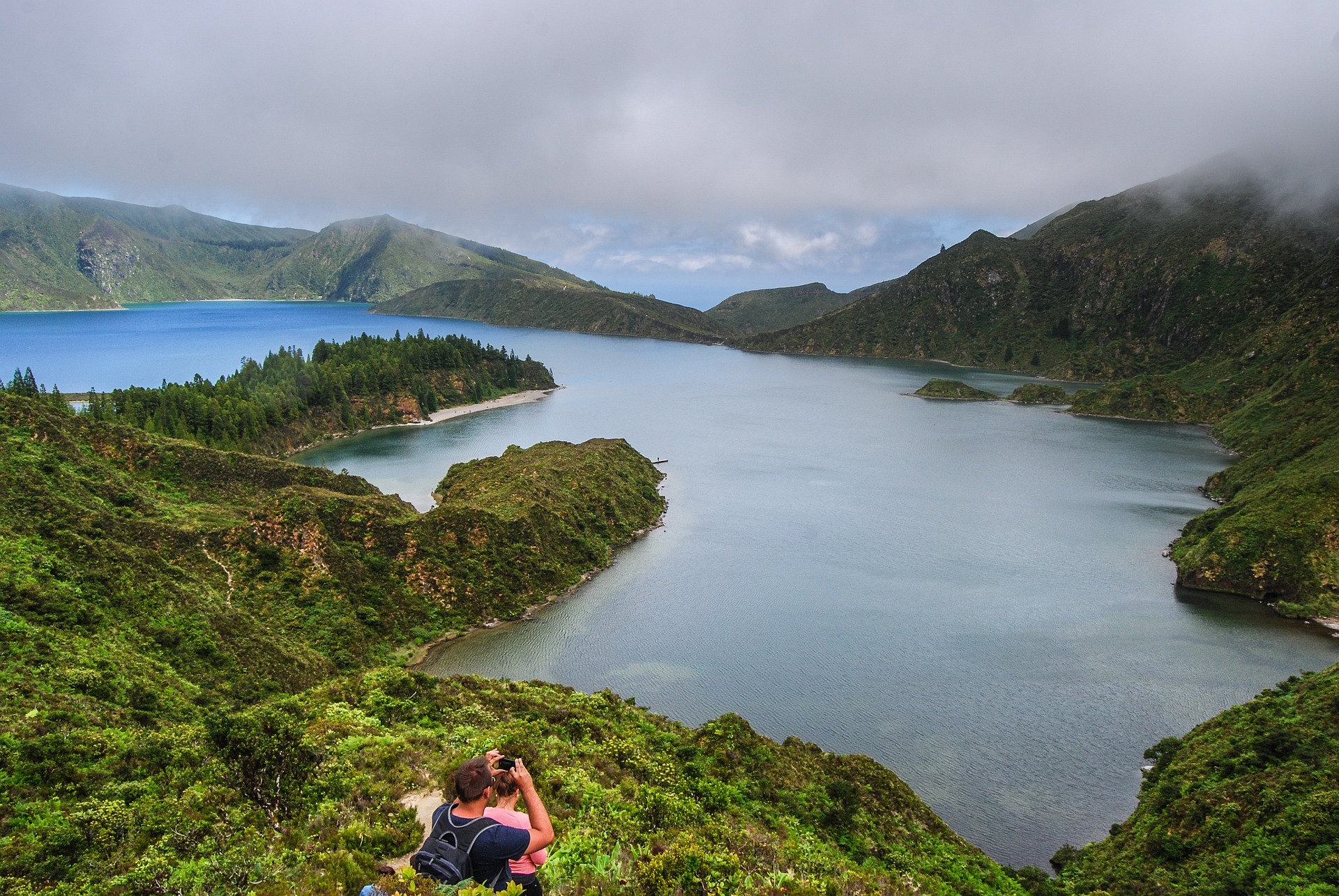
Geography and Nature of the Islands
Volcanic Landscapes
The volcanic origin of the Azores hosts dramatic landscapes and diverse natural formations. Crater lakes, lava fields, geothermal areas, and steaming hot springs are just a part of the islands' unique natural beauty. These features not only offer a visual feast but also provide great opportunities for hikers and photographers.
Flora and Fauna
The islands' rich biodiversity allows for the observation of various animal and plant species. The Azores are particularly known for bird watching and whale watching activities. It is also worth mentioning that Europe’s only tea plantations are located here.
Places to Visit
São Miguel Island
São Miguel, the largest and most popular island of the Azores, is famous for its crater lakes. Among these, Sete Cidades and Furnas are the most renowned. You can enjoy thermal pools and steaming geothermal areas in these locations. Sete Cidades, with its two differently colored lakes, is a unique crater lake that attracts photographers.
The island also hosts Ponta Delgada, the capital city, which draws visitors with its historical and modern structures. Ponta Delgada is a must-visit stop for tourists and also the city where the airport is located.
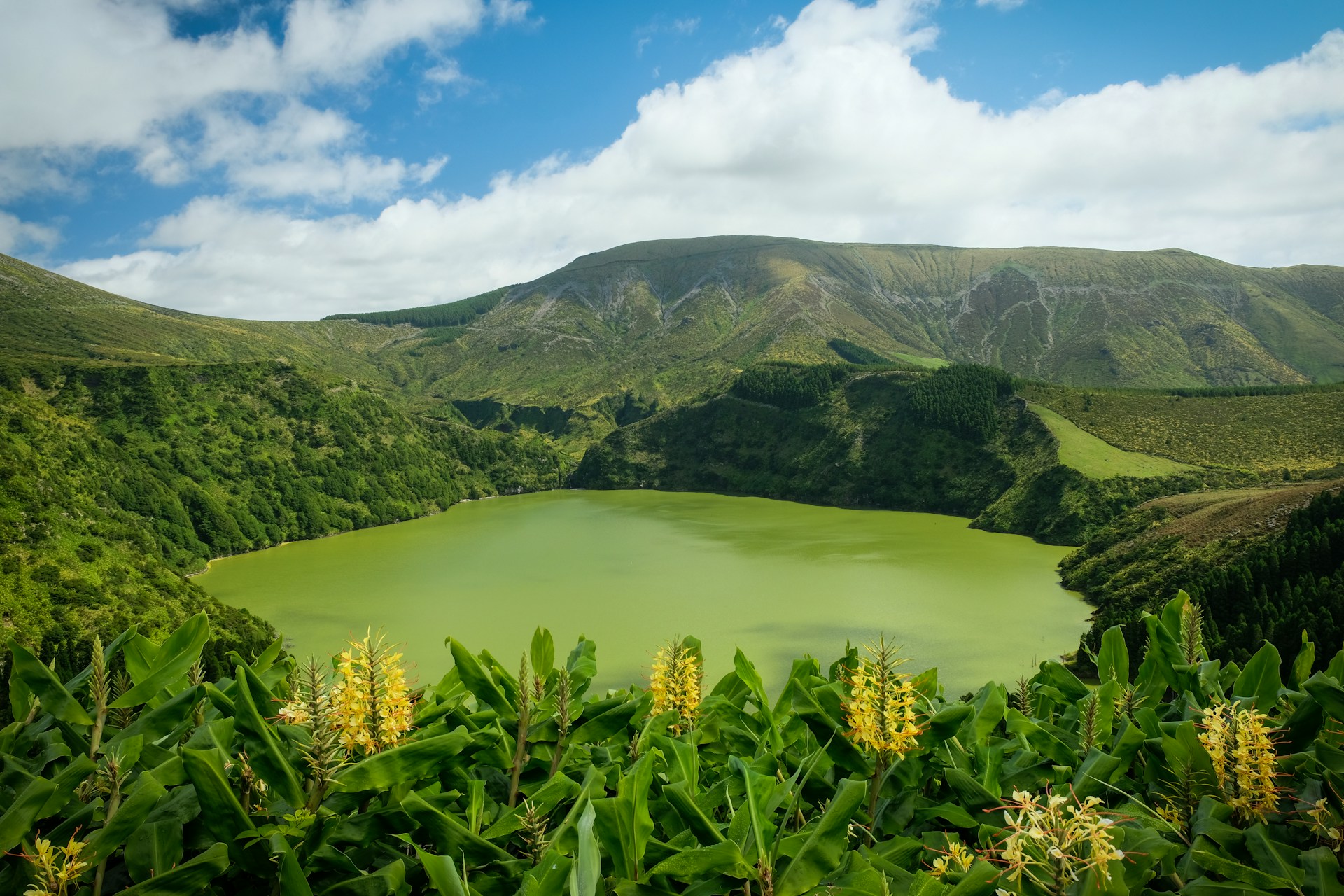
Pico Island
Named after the 2,351-meter-high volcanic Mount Pico, the island features Portugal’s highest peak, making it an excellent route for climbers. Pico Island is also famous for its vineyards and wine production, with its uniquely scenic mountains protected as a UNESCO World Heritage site.
Terceira Island
The most historic of the nine islands, Terceira, is another cultural heritage site on the UNESCO World Heritage list, known for its 16th-century historical structures and colorful houses. The city of Angra do Heroísmo showcases the island’s rich history and cultural heritage, creating an impressive atmosphere.
Faial Island
If you are a sailor or have an interest in maritime history, you have likely heard of Faial Island. The world-renowned Peter's Café Sport and the popular sailor stop of Horta city are major reasons for the island’s fame. Turquoise Porto Pim Beach and Capelinhos volcano, a testament to the island’s volcanic past, are among Faial Island’s natural attractions.
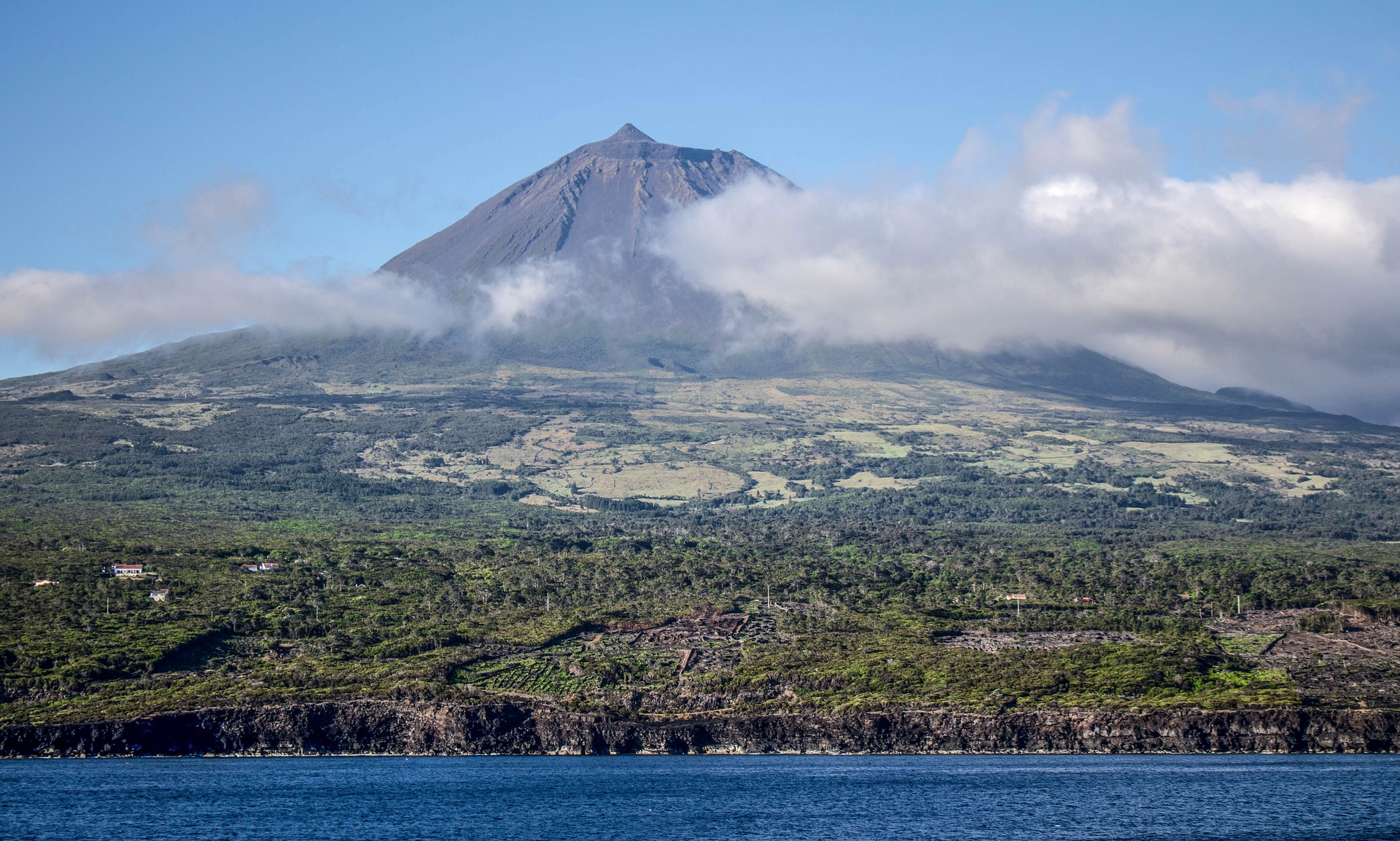
São Jorge Island
São Jorge, a must-visit island for hiking enthusiasts, hosts popular trails. You can see unique natural formations like the coastal plains known as Fajãs and narrow volcanic mountain ranges, as well as taste the island’s special São Jorge cheese, making it worth adding to your list.
Activities and Adventures
Hiking and Trekking
As previously mentioned, hiking is one of the best activities to do in the Azores. The trails winding through craters, lakes, and mountains offer experiences every nature lover will enjoy. If you want route suggestions, we can mention natural hiking trails like Sete Cidades, Lagoa do Fogo, and Caldeira Velha.
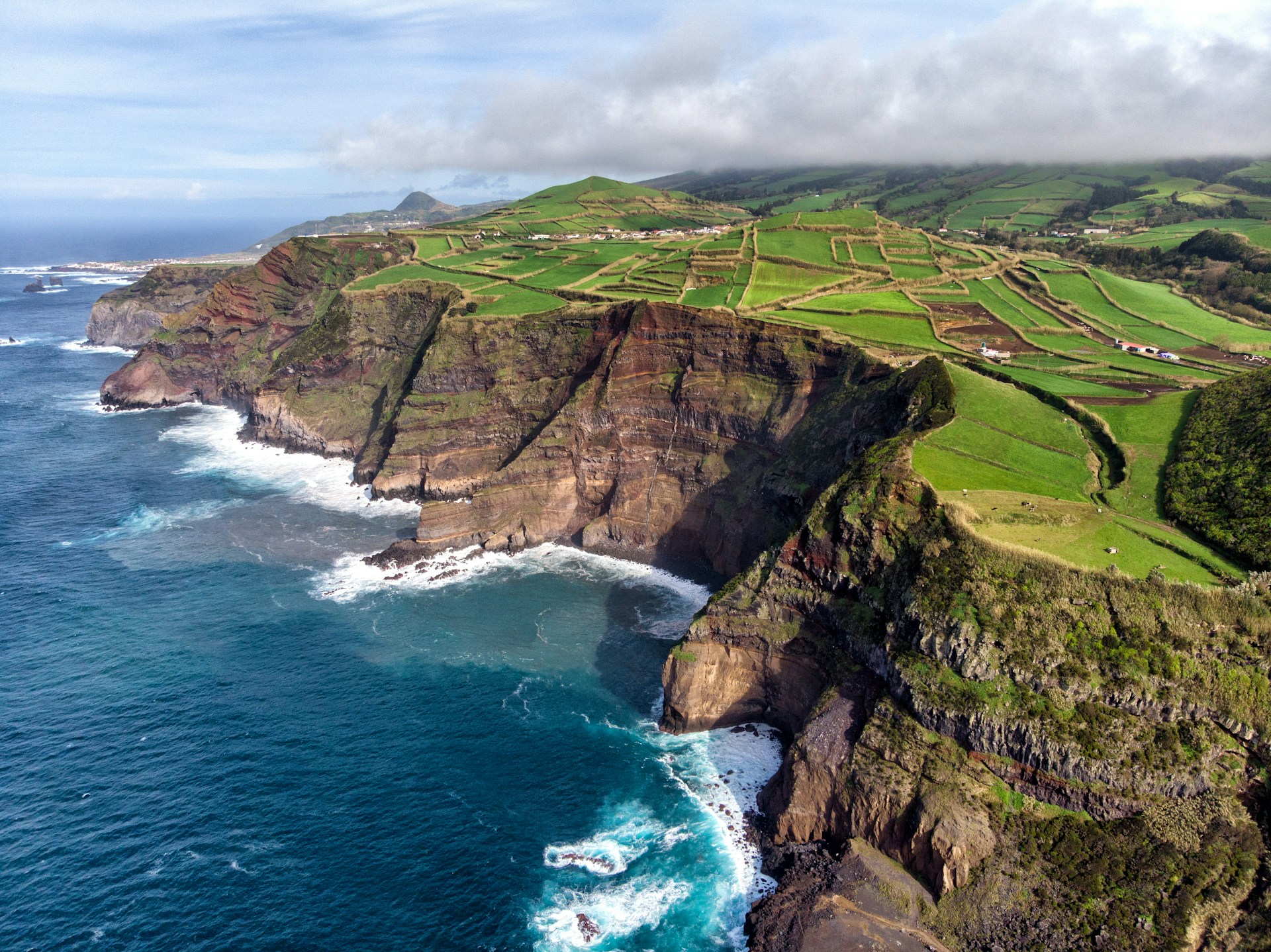
Water Sports and Diving
The surrounding waters of the islands offer great spots for diving and snorkeling. Colorful corals, caves, and shipwrecks provide unique exploration opportunities for diving enthusiasts. Besides diving, water sports like windsurfing and sailing are also very popular around the islands.
Whale and Dolphin Watching
Whale and dolphin watching are significant activities that have made the Azores famous worldwide. To observe these magnificent marine creatures in their natural habitat, we recommend joining a tour around São Miguel and Pico islands.
Geothermal Pools and Thermal Baths
The geothermal pools and thermal baths on the islands offer visitors relaxation and rejuvenation. The natural thermal pools in Furnas and the ocean-side thermal baths at Ponta da Ferraria are the most popular spots.
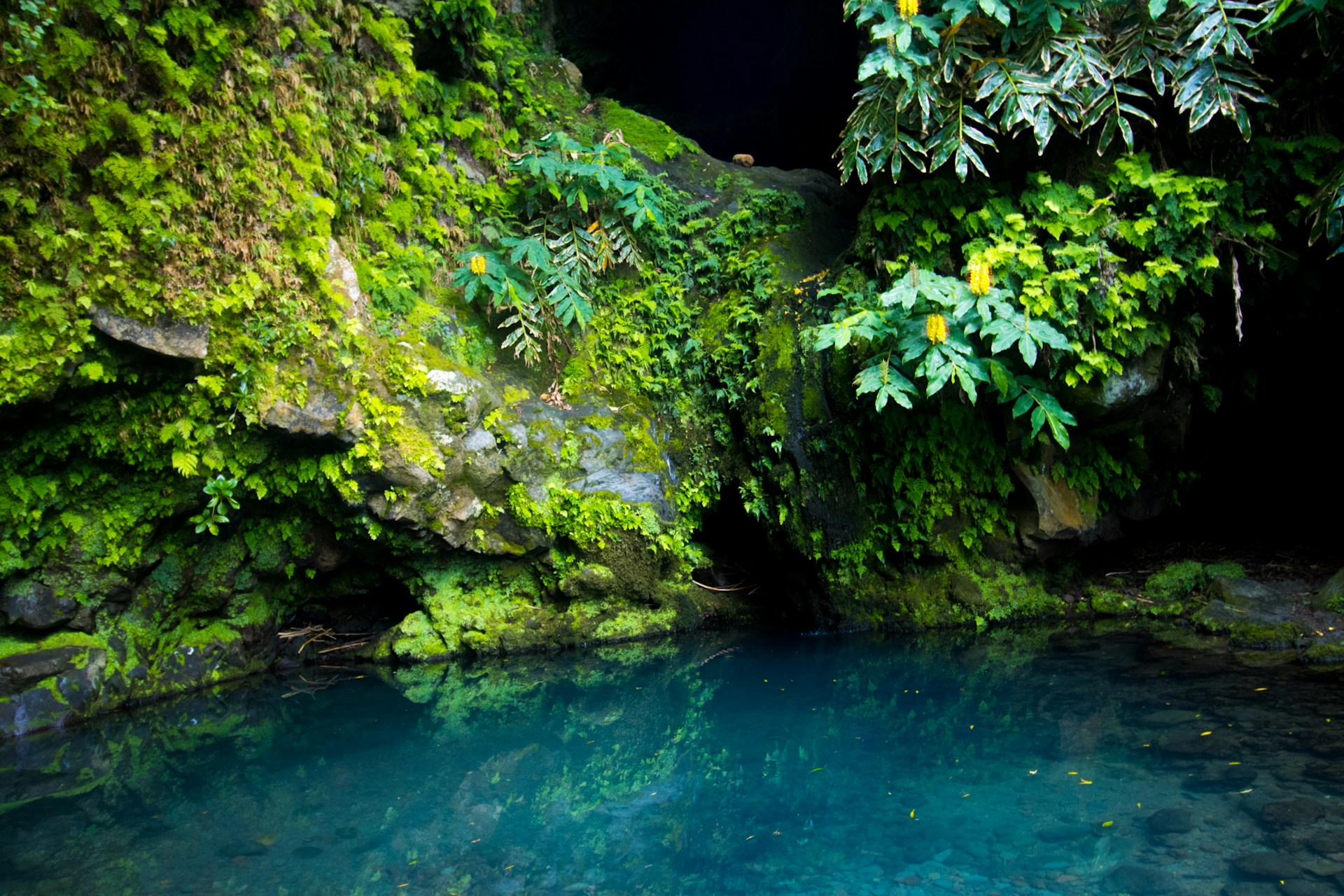
Local Flavors
As an island group, the fresh and delicious seafood forms the basis of the Azorean cuisine. You can try local dishes such as limpets (lapas) and baked octopus. However, the must-try dish is definitely Cozido das Furnas. This traditional meal, cooked in the natural hot springs in the Furnas valley of São Miguel Island, is prepared by slowly cooking meat and vegetables in volcanic soil, making it our top recommendation for gastronomic experiences.
As mentioned earlier, the Azores are home to Europe’s only tea plantations. The islands also grow delicious pineapples in their tropical climate, offering the opportunity to see the production processes of both tea and pineapples and taste fresh products.
How to Get to the Azores
Regular flights from various major European cities operate to Ponta Delgada (João Paulo II Airport) on São Miguel Island. From there, you can reach other islands by ferry and local flights. Transportation within the islands is commonly provided by public transport and taxis.



